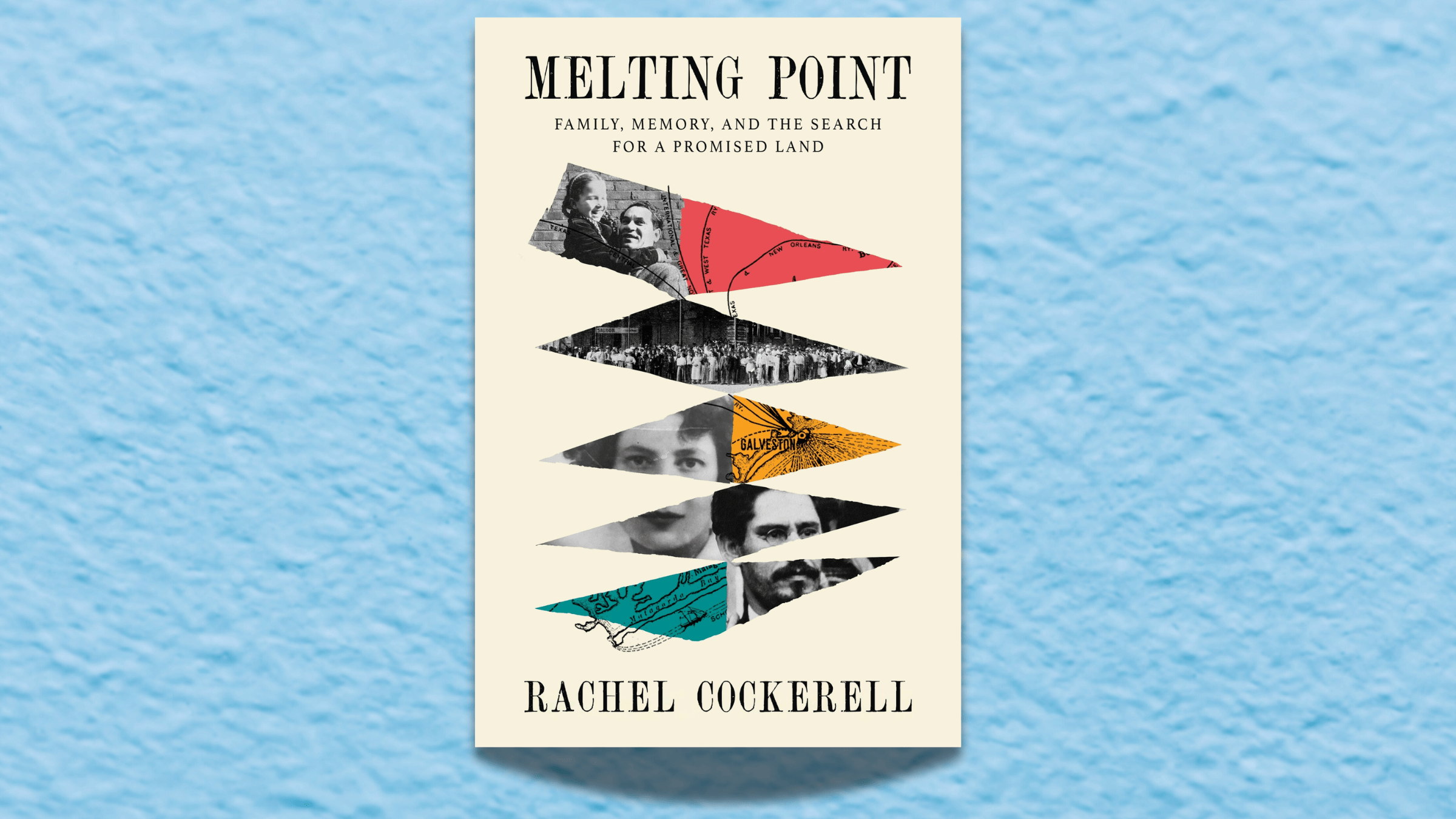What is ‘Zionism without Zion?’ New history asks, but can’t answer
In ‘Melting Point’, Rachel Cockerell provides lots of historical sources, but little insight into what they’re saying

‘Melting Point’ is Rachel Cockerell’s first novel. Graphic by Canva/Olivia Haynie
For her first book, Rachel Cockerell took an unconventional approach. With the exception of the preface and the afterword, Melting Point, a history of Cockerell’s family and their involvement in early Zionism, is made entirely of archival newspaper, book and interview excerpts — all presented without commentary or analysis.
In the preface, Cockerell explains that the book was originally meant to be about her grandmother and great-aunt raising their families together in London, but became about their father David Jochelman. Jochelman was deeply involved in the Galveston Movement, an initiative to give Eastern European Jews a safe haven from antisemitism; supported by Israel Zangwill’s Jewish Territorial Organization, the plan relocated 10,000 Russian Jews to Galveston, Texas between 1907 and 1914.
Cockerell organized the book into three parts. The first details the development of political Zionism; the second, her great-uncle’s life in New York; and the third, her family’s life in London and Israel.
The amount of archival research is impressive and the chorus of primary sources paints an immersive picture of events. But, at times, the book feels incredibly dense. There are direct quotations that repeat the same point, block quotes that go on for pages and several time jumps between material. While Cockerell’s instinct to limit her editorializing sounds reasonable in theory, some paraphrasing and secondary analysis would have helped contextualize the sources.
Even though David Jochelman is the character that ties the different stories in the book together, he doesn’t appear until almost halfway into Melting Point. (Cockerell does acknowledge this late entrance in her preface.) Without the early establishment of a clear narrative, the book’s about-face from a generalized history lesson, in section one, to a specific family history in sections two and three feels jarring.
Instead of weaving the life stories together, they are segmented in a way that leaves the book unfocused. The Galveston Movement, despite being advertised as the crux of the book, doesn’t appear until Chapter 13 — nearly halfway through the book — and is barely discussed in the last two sections. And, in the second section, we skip from 1944 to 1950 without any mention of the establishment of Israel in 1948. Though the book covers Israel later, the time hop is confusing especially given the book’s focus on the search for a Jewish homeland.
The lack of analysis also means some of the most interesting information in the book is brushed over.
For example, Zangwill, the backer of the Galveston Movement and one of the central figures of the book, has many ideological discrepancies that are recorded but never examined.
In a 1905 article for the newspaper American Israelite, Jewish historian Gotthard Deustch wrote that Zangwill was married to a Christian woman and planned on raising Christian children. But three years later, in a 1908 interview with the New York Herald, Zangwill complained that Judaism is “struggling to maintain its religion” and laments the frequency of intermarriage.
Yet that same year, Zangwill also wrote the play “The Melting Pot,” which champions assimilation and the erasure of ethnic markers in American society. These passages demonstrate the complex relationship Zangwill had with his identity, but never directly engages with that theme. Melting Point could have been much richer if it had engaged with these contradictions or elaborated on what might have influenced these changes.
Cockerell also uses several racially charged excerpts about the Uganda Scheme, a proposal by the British government for a Jewish homeland to be established in modern day Kenya, misidentified at the time as Uganda. She includes a Topeka State Journal report that “no less than seven distinct varieties of savage” inhabit the area. Among these are the Kavirondo, who the article claims are one time cannibals who sharpen their teeth into needles. The Jewish Chronicle remarked, in another included excerpt, that Zionists’ negative reactions to the proposal of a “settlement among half savage tribes” are understandable.
Googling the Kavirondo today, virtually no results appear suggesting they regularly sharpened their teeth or practiced cannibalism. That doesn’t mean these events never took place, but given modern scholarship on the misguided nature of colonial narratives, the choice to include these claims, context-free, is questionable. Cockerell may have meant these excerpts to illustrate the romantic colonial ideas that shaped settler strategies of the time. But these demeaning descriptions of Africans are placed alongside historical reports, unchallenged and without comment, making them sound like uncontested facts.
So much of Melting Point’s material feels relevant to current debates about Israel. Is Zionism colonialism? If so, is it a unique form, or is it equivalent to other European settler projects? Can the language of postcolonial studies even capture the complexities of how Israel came into existence? What does having a homeland even mean?
The materials Cockerell gathered could provide important insight into these questions, yet the deeper conversation lurking within the 360 pages is ignored.
Instead, the book functions more as an archive than a complete work. But Cockerell shows a lot of talent as a writer in the foreword and the preface. It would have been wonderful to have that writing in the rest of the book, too.
Melting Point will be released in the United States on May 6, 2025.

















